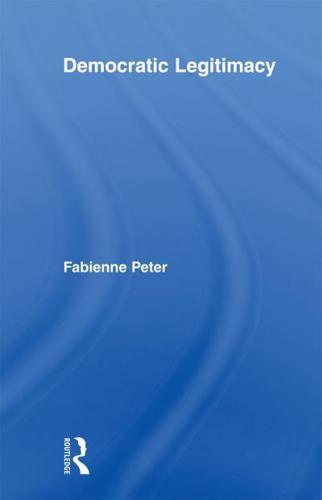Publisher's Synopsis
This book offers a systematic treatment of the requirements of democratic legitimacy. It argues that democratic procedures are essential for political legitimacy because of the need to respect value pluralism and because of the learning process that democratic decision-making enables. It proposes a framework for distinguishing among the different ways in which the requirements of democratic legitimacy have been interpreted. Peter then uses this framework to identify and defend what appears as the most plausible conception of democratic legitimacy. According to this conception, democratic legitimacy requires that the decision-making process satisfies certain conditions of political and epistemic fairness.









